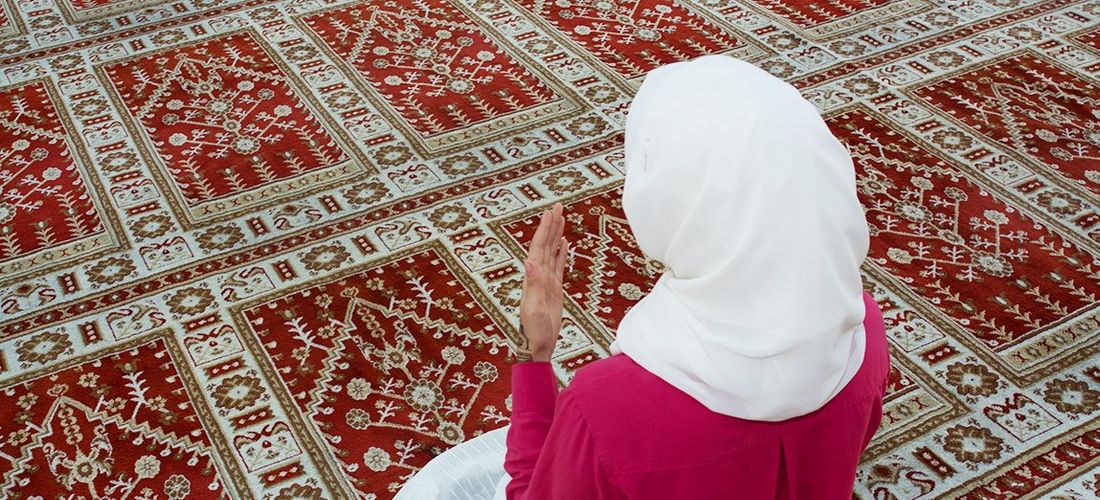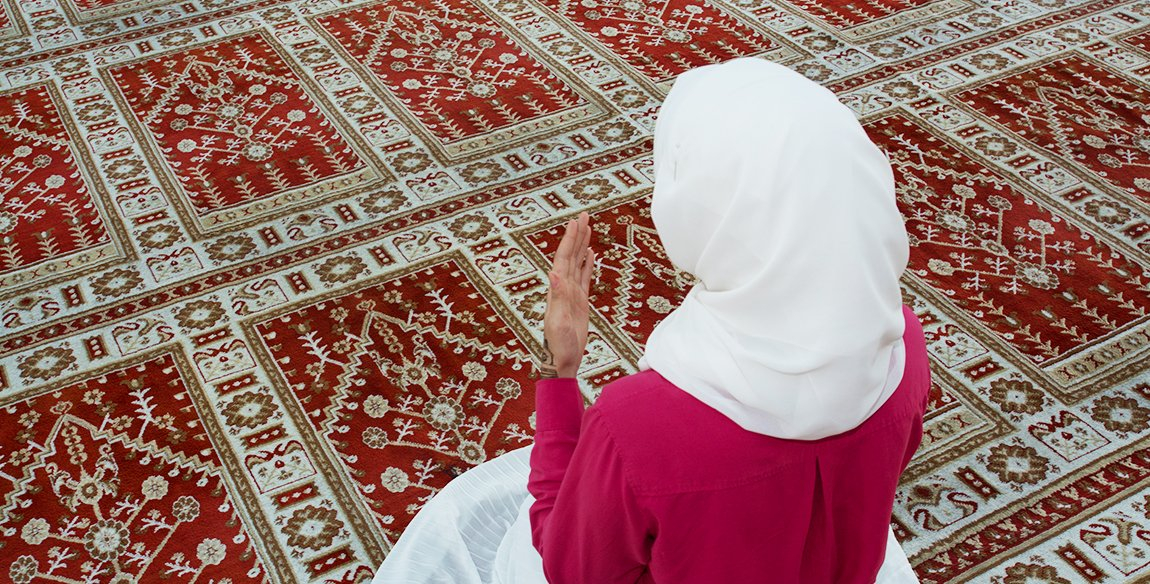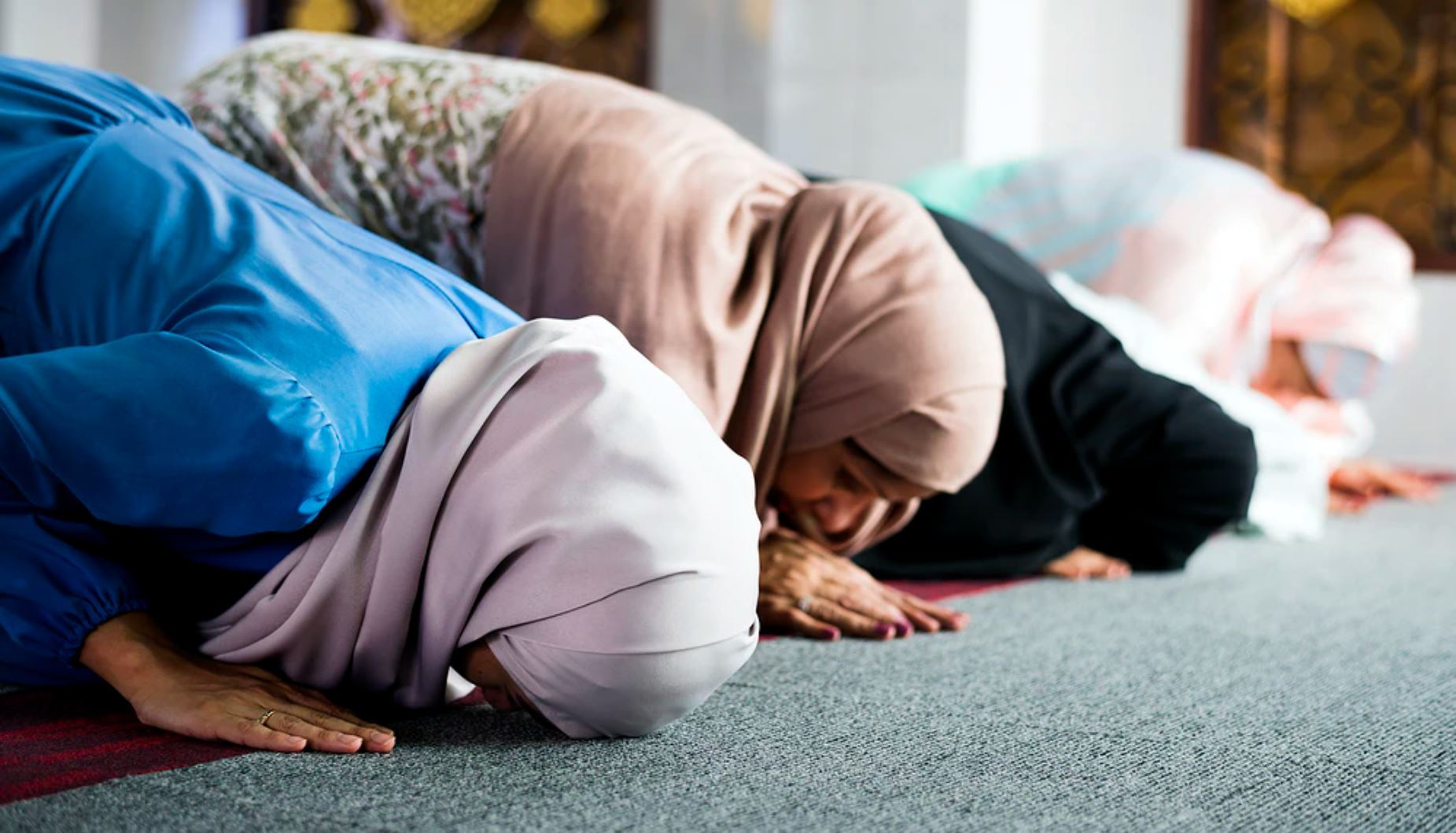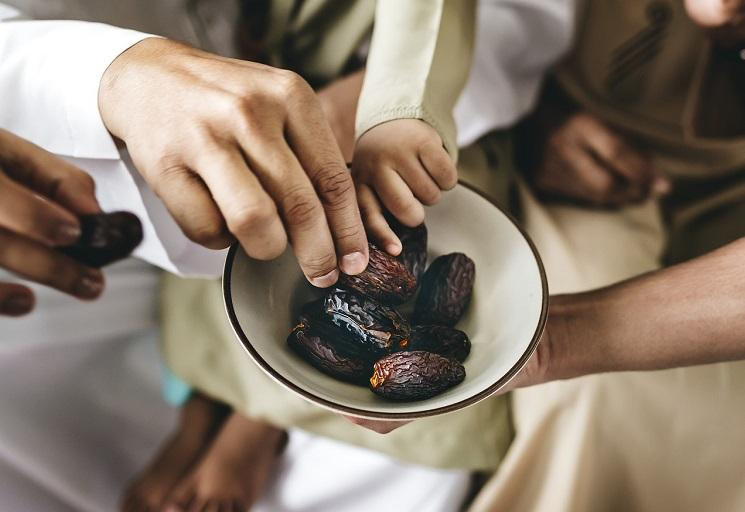A New Convert's Go-To Guide To Islam For the Start of Your Muslim Life
Faith
|
Aug 7, 2020
|
14 MIN READ

Image source: Remezcla.com
So, you're new to Islam! I want to begin by welcoming you with the greeting of Islam: Assalamu Alaikum (Peace Be Upon You)!
Welcome to Islam! May Allah (S) shower you with His peace and blessings!
You are now a part of the beautiful religion of Islam and a part of a worldwide sisterhood, Alhamdulillah! We want to extend a [virtual] hand and let you know that you are not alone; we got your back, girl! ;)

Before we begin with this beginner's guide to Islam, please understand that it is normal to feel a medley of different emotions – from happy, to nervous, to anxious and even overwhelmed. This is a major transition for you, one that will touch every aspect of your life. Islam is such a beautiful religion, but the process of learning all of the rules and guidelines can be overwhelming at first, especially for a convert who has other responsibilities in life to balance, like school, work, family, etc.
So, we are here to help! With the assistance of a wonderful group of convert sisters, I compiled a list of things you will need to get through your first few months as a new Muslim! In this post, I will cover everything from faith, identity, prayer, give you a list of resources and books and a list of terms that may be helpful to you.
Disclaimer: Please understand that this post merely serves to help facilitate your transition and make things easier for you and in no way replaces any knowledge you may gain from doing an in-depth study of the teachings of Islam. This post won't cover everything – indeed whole books can be (and have been) written about Islam 101. Muslims are always encouraged to seek knowledge and learn more about the Quran and Sunnah (more on these words later!) and to work towards a having a better connection with our Creator, Allah (S).
Some Terms to Know

Common Phrases Used in Daily Life
Salah – Prayer
Muslims must pray five times a day. It is one of the pillars of Islam, and thus one of the first things you should focus on learning as a new Muslim. Salah is the Muslim's way of worshiping Allah (S), disconnecting from the worldly matters and communicating with Him. When done correctly, salah will be your reprieve from the daily grind and life's difficulties, and your heart's rest. See here for more information.
Salah will be the first thing Muslims will be questioned about on the Day of Judgement. The Prophet Muhammad (saw) said, “The first act that the servant of Allah will be accountable for on the Day of Judgement will be his prayers. If they are good, the rest of his acts will be good. But if they are bad, the rest of his acts will be bad.”
Prayer is one of the few acts of worships that is expected to be done under most any circumstance, whether it's travel, war, sickness, etc. (There are exceptions for cognitive disability or incapacity.) Modifications are to be made to make it easier on those with more difficult circumstances, but salah must still be performed.
Children and women on their menses or experiencing post-natal bleeding, however, are excused from praying.
Allah (S) tells us one of the most beautiful virtues of salah in the Quran:
"Recite what is sent of the Book by inspiration to thee, and establish regular prayer: for prayer restrains from shameful and unjust deeds; and remembrance of Allah is the greatest (thing in life) without a doubt. And Allah knows the (deeds) that ye do."
Salah serves as a constant reminder of Allah (S), which helps us develop taqwa (awareness, love and fear of God), which we can carry throughout our to help us keep from sinning. It thus strengthens our faith and brings us comfort.
Aside from providing Muslims with inner peace and tranquility, salah has some social benefits as well, as it can be performed individually or in a congregation (group), called jama'a. There is also the weekly Friday sermon and prayer, called Jumu'ah or Jummah, often attended by an entire community (and required of adult males).
The five daily prayers are:
Because prayer times depend on the sun's position, they can vary from place to place. Use this website to find the prayer times where you live. You can also download prayer apps on your phone.
To perform salah, you must fulfill the following criteria:
For a guide on how to perform salah and what to say, check out the following videos: New Muslim Guide | How Do I Pray | Muslim Prayer by Jihad Turk and Josh Herman | Prayer in Islam
Wudu – Ablution
Wudu is a prerequisite to performing salah. It is the act of washing certain body parts in a specific order before prayer. The Prophet said of wudu:
“When a Muslim or a believer performs ablution and washes his face, every lesser sin that he committed as a result of looking washes away with water (or with the last drop of water). When he washes his hands, every sin that his hands committed washes away with water (or with the last drop of water). When he washes his feet, every sin to which he proceeded washes away with water (or with the last drop of water) until he emerges pure and sin free..”
How to Perform Wudu
Note: If you are wearing thick (read: not see-through) clean socks that cover your ankle bone, you don't have to remove them and can just wipe over the top of the socks once. Socks can't be on your feet for more than 24 hours for this to be allowed, and you must already have wudu on your feet from before you put them on.
A good way to do this is to make full wudu in the morning at home and then put your socks on. That way at work, you don't have to remove them should you need to remake your wudu.
Things that Nullify Wudu
Ghusl
Ghusl is a more elaborate way of purifying one's body before prayer, usually done in the shower (unless one doesn't have access). It only needs to be done after the following:
How to Perform Ghusl

Melanie reading Quran in her home. Image source: Melanie Elturk
Tawheed – The Oneness of Faith
To be Muslim, you must believe with full conviction in the oneness of God, that there is no God but Allah (S), and that the Prophet Muhammad (saw) is His last and final messenger. This is essentially the shahadah, or testament of faith, that one says when they convert to Islam.
Muslims believe in the Abrahamic prophets, and they believe that Judaism and Christianity also came from God (or Allah) but that Muhammad (saw) was the last prophet.
Note: The (saw) after the Prophet Muhammad's name denotes sallallahu 'alayhi wa sallam, which means peace and blessings be upon him.
Islam literally means submission in Arabic, and it comes from the root word "Salam," which means peace. Islam sits on the principle of submitting to God and His commands alone. Sometimes you'll understand why God asks us to do something, but at other times, it's more important to just do.
As you navigate through all the new information you'll be learning as a Muslim, be cognizant of the difference between culture and religion. Many cultures mandate certain rules that actually go against Islam, and so it is incumbent on you to learn about who Allah (S) is and what exactly He teaches us. In fact, the first verse of the Quran to ever be sent down to the Prophet Muhammad (saw) via Angel Jibril (Gabriel) was Iqra – read.
So, if there is one piece of advice I'll give you, it's to read. Read the Quran, read the seerah (stories from the Prophet Muhammad's life), read the books of tafsir (explanation of the Quran), read the books of hadith. Read and know your religion. Read and get to know your Lord.
This will help you get started: Here's a PDF version of a book that details who Allah is based on His 99 names. And, here's a PDF version of one of the most famous books of the Prophet Muhammad (saw)'s life.
The Prophet Muhammad (saw)'s life was vastly recorded, and this is called the seerah, which includes all stories, sayings and history of his life. Sunni Islam believes that the sunnah of the Prophet (or his teachings and ways, which you learn from the seerah) compliment the Quran in that he elaborates and explains different things that Muslims believe/ have to do.
Allah (S) describes Himself as the Most Merciful. Never lose faith in Him, and when in doubt, pray pray pray … and pray. Pray with full conviction that He hears your prayers and He will answer them, guaranteed, albeit not necessarily right away. Everything will happen in THE right time with His wisdom.
The most important thing you should be focusing on in the beginning of your journey is developing a relationship with God. This means getting to know who He is, how he describes Himself and what He tells us of Himself. Everything comes from Him. Speak to God. Pray anytime, and any day. For anything.
Here's a fun story for you: I once prayed so passionately as a teenager for my friend to come over after she told me her mother was sick and couldn't drop her off anymore. Minutes later she called and said her mother was feeling better and can bring her after all! I laughed but knew it was 100 percent Allah (S) answering my prayer!
This leads me to my next point: I was once told that the key to getting your prayers (du'a) answered is to pray with full and absolute conviction that God will answer you, and I've noticed that those prayers tend to really get answered –sometimes in due time and sometimes immediately. Sometimes, that prayer never gets answered until you reach the Hearafter.
But, that goes with knowing your Lord; that He wants to give, not take away from you. If He does take away from you, then it is His way of testing you, molding you and making you better, stronger. Or, it wasn't best for you; you just don't know it yet.
Allah is Al-Rahman Al-Raheem. The most merciful. Remember that, always.
Sunnah vs. Fard
In Islam, we have two concepts called sunnah and fard.
Fard is something that is absolutely necessary/mandatory to do on each Muslim. It is commanded by Allah (S). For example, every adult, sane Muslim must pray five times a day – obviously with the exception of women on their menstrual cycle or postpartum bleeding.
Sunnah is the teachings of the Prophet Muhammad (saw). For example, it is sunnah to pray two rak'ahs before and after duhr. It is not required, but it was his practice. And so many Muslims try to emulate him as he was the best of mankind. Another example of sunnah – eat with your right hand.
The Quran and sunnah work together to bring the complete picture of Islam, and thus they complement each other. So while many view sunnah as just bonus or extra credit, often times it's completely necessary. For example, it is in the sunnah that we learn how exactly to make wudu, how to perform salah, how to break our fast, how to worship Allah (S), and how to behave as Muslims. We need to know and do these things.
The sunnah teaches us that when we use the bathroom, we should rinse ourselves with water to achieve utmost cleanliness. The sunnah teaches us that we must care for our neighbors, and how to show kindness and mercy towards others, even those who attack us as Muslims.
This is part of the shahadah, the oath you take when you become Muslim. To worship no one but Allah (S) in accordance with the Quran and the teachings of the Prophet Muhammad (saw).

Ramadan
We must talk about Ramadan! Ramadan is the holiest month of the Muslim calendar (which follows a lunar cycle, and so the time Ramadan falls changes every year). It is the month in which the Quran was sent down to the Prophet Muhammad (saw). Ramadan is also the month is which Muslims fast from dawn until sunset. Allah (S) describes the purpose of fasting in the Quran, saying,
"O you who have believed, decreed upon you is fasting as it was decreed upon those before you that you may become righteous" (2:183)
The exact words Allah used in the Quran was la'allakum tattaqoon – so you may develop taqwa, or fear and love of God, and full consciousness that He is always watching. To put it simply, starve your body (only until sundown, or Maghreb prayer) to feed your soul. For this reason, worship is amplified in Ramadan; if you go to a mosque on any given night of Ramadan, you may see hundreds of worshipers standing in prayer to their Lord.
We've written so many posts about all aspects of Ramadan. Just type "Ramadan" in the search bar of the blog to see a list of them!
There are so many other things to know about Islam and being Muslim, but we wanted to cover the things that should be most useful to you in the beginning stages of being Muslim. There are different sects in Islam, like Sunni and Shi'a, and so much more to explore. Let us know in the comments below what other questions you may have, and we'll do our best to answer them or connect you with resources that can answer them!
Bismillah al-Rahman al-Raheem on your journey as a Muslim! May it be beautiful, fulfilling and give you peace. We know it can be lonely as a new Muslim, and Insha'Allah we are here for you!
Subscribe to be the first to know about new product releases, styling ideas and more.
What products are you interested in?

